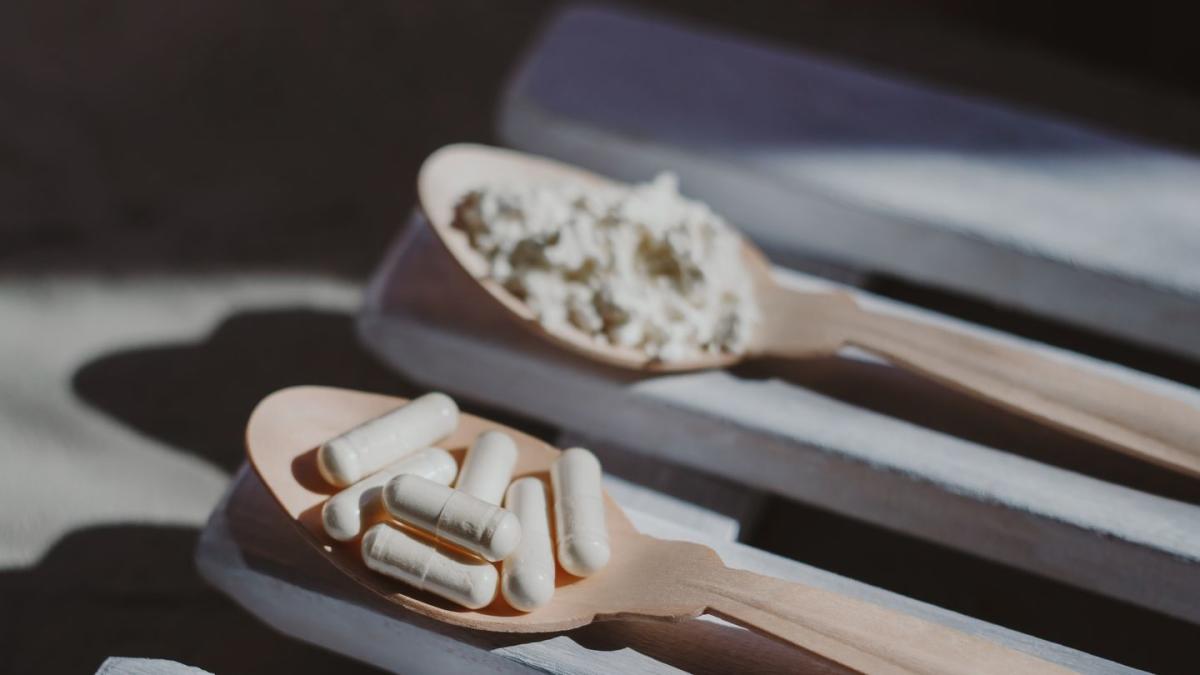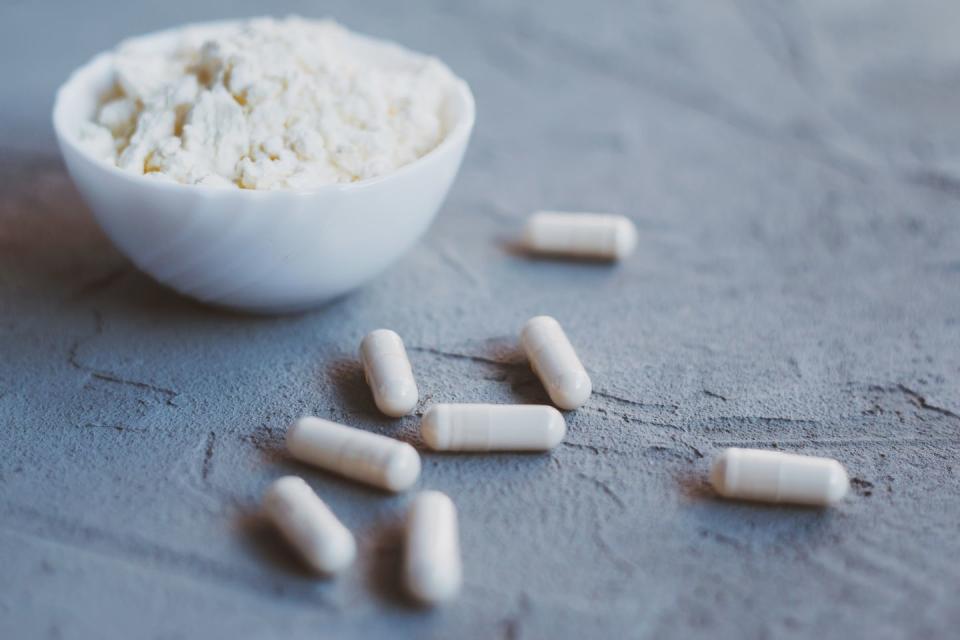Fitness
What Experts Want You to Know Before You Dare Try Colostrum Supplements

Colostrum is sometimes called “liquid gold” or “miracle milk” because of its golden color and its precious nutritional benefits. This ingredient — derived from cow’s milk — is touted by social media influencers as a wellness wonder supplement that can do everything from boost immunity to improve gut health, and even give you gorgeous skin. But can colostrum supplements really do anything to improve your health? We asked experts to weigh in on bovine colostrum hype versus reality.
[table-of-contents] stripped
What is colostrum?
Colostrum is nutrient-dense milky fluid produced by mammals, including human mothers, in the first few days after giving birth. (It changes to breast milk within 2 to 4 days after a baby is born.) Colostrum is high in antibodies that build a newborn’s immune system.
What are the nutrients in colostrum?
Colostrum has a high concentration of essential nutrients, especially antibodies like immunoglobulin A, white blood cells called leukocytes, and epidermal growth factors that all help to strengthen the immune system, according to the Cleveland Clinic. It’s a baby’s first food and also acts as a natural immune booster to protect them from all kinds of infections.
What are colostrum supplements?
Colostrum supplements are made from bovine colostrum and come in powder, pill and liquid forms. How is this cow colostrum processed, and exactly how much is in a dietary supplement? No one but the manufacturer knows. “The FDA is responsible for regulating dietary supplements, but as a subcategory of food — not medication,” says Pieter Cohen, MD, an internist at Cambridge Health Alliance and associate professor of medicine at Harvard Medical School. “What that means is that a manufacturer can introduce anything into the market that they believe is safe. There’s no way of knowing if you’re getting high-quality bovine colostrum, or how much is in a supplement. There might be a trace amount of cow colostrum in a product that contains a lot of other stuff, like whey protein powder, and this is totally legal.” So is advertising all these imagined benefits of bovine colostrum, he adds.

What are the health benefit claims?
Why would an adult human need cow colostrum? In theory, it makes sense that this bovine version of “liquid gold” might work wonders as an ingestible supplement ingredient. If colostrum works to build a newborn’s immune system, then it could possibly boost immunity in adults. Colostrum’s anti-inflammatory properties might be beneficial for healing. If bovine colostrum helps coat a baby calf’s developing intestines and helps reduce inflammation in their newborn digestive systems, then couldn’t it improve gut health in an adult? In theory, maybe, but in real life, there’s no great evidence for any of that.
Here are some popular health claims around the supplement, and the truth about them.
-
Bolster immunity: While human (and cow) colostrum has super-powered immune-boosting properties in nature, there is still no evidence that a bovine colostrum supplement has the same kind of ability to strengthen an adult’s defense against illness. One small study suggests that taking bovine colostrum supplements may be linked to fewer incidents of upper respiratory infection, but the overall data is very inconsistent. “Even if the hypothesized immune support benefits of bovine colostrum were studied and found to have some effect, you’d need to get the colostrum ingredient in the exact formulation and dosage that was studied in order to be sure it’s going to work, and that’s impossible right now with dietary supplements,” says Cohen.
-
Improve gut health: “Some research suggests that colostrum supplementation may help reduce abdominal pain in people with ulcerative colitis, and one small study found that it reduced recurrent diarrhea in children compared to a placebo,” says Amy Bragagnini, RD, CSO, and spokesperson for the Academy of Nutrition and Dietetics, “but I would want to see much larger trials and more robust research before recommending it to my patients.” A 2022 systemic review found that colostrum supplements might help to improve leaky gut syndrome in athletes, but the authors of this study note in their conclusion that “well-designed, placebo-controlled, and randomized studies are needed to evaluate the long-term safety and efficacy in high-performance athletes.”
-
Increase athletic performance and speed up recovery: A few small clinical trials— all supported by supplement manufacturers — found that bovine colostrum supplementation helped athletes recover more quickly and improved their performance better than a placebo. But one peer-reviewed journal published review of the available research on bovine colostrum supplementation ultimately found that the current evidence is minimal and inconclusive. “There are a few small studies, but nothing to suggest that colostrum supplements are ready for prime time,” says Cohen.
-
Improve your complexion and prevent skin aging. There is no rigorous, published data that shows bovine colostrum helps with skin healing or regeneration, or any kind of anti-aging claims. You’re better off skipping these supplements to get healthier skin, and splurging on a great sunscreen and moisturizer that will deliver direct (and proven) results.
Are there side effects?
Colostrum supplements are generally considered safe for most people, however bovine colostrum does contain lactose, so those who are lactose-intolerant or have a dairy allergy may want to steer clear. Colostrum also contains estrogen and other hormones, so it’s advised that those who have hormone-sensitive conditions should not take colostrum supplements. There just hasn’t been enough research conducted on the potential risks of taking bovine colostrum supplements. “Again, while medications are carefully controlled by the FDA,” says Cohen, supplements have very little oversight.
Bottom line
“There haven’t been any large, carefully controlled studies of colostrum supplement in humans, and even though it presents an interesting hypothesis, the research on bovine colostrum does not yet prove any significant benefits,” says Cohen. “There’s no evidence currently that would drive doctors like myself to recommend it to patients for any reason.”
You Might Also Like


)






